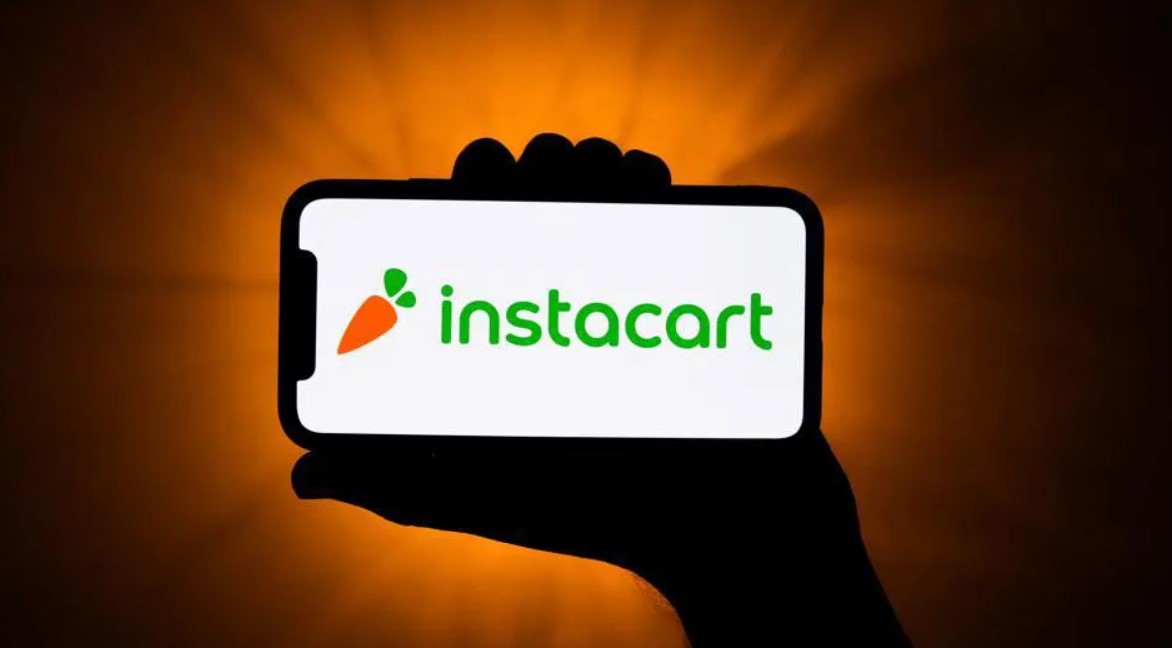On Monday, Instacart, the grocery-delivery company that experienced significant growth during the pandemic, finally announced the pricing of its long-anticipated initial public offering (IPO) at $30 per share. This development marks a notable milestone as Instacart will be the first prominent venture-backed technology company to enter the U.S. public market since December 2021.
The pricing of the offering landed at the upper end of the anticipated range, specifically within the bracket of $28 to $30 per share. As a result, Instacart’s valuation stands at approximately $10 billion when considering fully diluted shares. The IPO involved the sale of 22 million shares, with 14.1 million originating from the company itself and the remaining 7.9 million from existing shareholders. Investors can anticipate the stock’s debut on the Nasdaq Stock Market under the ticker symbol “CART,” scheduled for Tuesday.
Following the recent triumphant entrance of British chip designer Arm into the market, Instacart’s IPO is poised to make a significant impact as well. If Instacart’s shares perform strongly, this success could pave the way for a wave of startups to consider going public and listing their stocks.
Investors in the public market seem prepared to re-engage with newly issued stocks, but they now exhibit greater price sensitivity compared to the exuberant times of 2021. A significant number of companies that went public in 2020 and 2021 currently trade below their initial offering prices, leaving funds that invested in these deals potentially facing losses. It’s worth noting that Instacart is pursuing a considerably lower valuation than the $39 billion it achieved during a funding round in 2021.
The successful IPOs of companies like Arm, Instacart, and the upcoming IPO of Klaviyo could potentially encourage other firms, including trendy shoe designer Birkenstock, which plans to go public in October. This positive market sentiment may prompt more companies to prepare stock-offering documents for later this year, although a significant wave of IPOs is more likely to occur in early 2024.
Instacart, founded in 2012, provides grocery delivery services by sending couriers to pick and deliver orders from grocery stores to customers’ homes. The company, backed by over $2 billion in venture capital funding, had long expressed its intention to go public. Under the leadership of CEO Fidji Simo, Instacart has expanded beyond its core grocery delivery business, venturing into areas such as advertising.
Instacart positions itself as a grocery technology company that offers a range of services to assist food retailers during a period of industry transformation. These services include delivery, in-store technology, advertising, and data services, providing valuable solutions that are challenging to develop from scratch.
According to Instacart’s filings, their revenue for the first six months of this year increased by approximately 31% compared to the same period last year, reaching approximately $1.5 billion. While the growth in their core delivery business has slowed, with order volumes remaining relatively steady, revenue from advertising and other segments grew by about 24%. Notably, the company achieved a profit of $242 million, a significant improvement from the $74 million net loss reported in the previous year.
For its upcoming IPO, Instacart has secured commitments from investors totaling $400 million, and PepsiCo has separately agreed to invest $175 million in convertible-preferred stock through a private placement. In the IPO, Instacart, along with former executives and senior staff, will sell less than 10% of the company’s ownership. The funds raised from the IPO will be allocated, in part, to cover taxes and expenses related to restricted stock units and stock awards provided to employees.
(Source: Ari Levy | CNBC | Corrie Driebusch | Jaewon Kang | WSJ)









